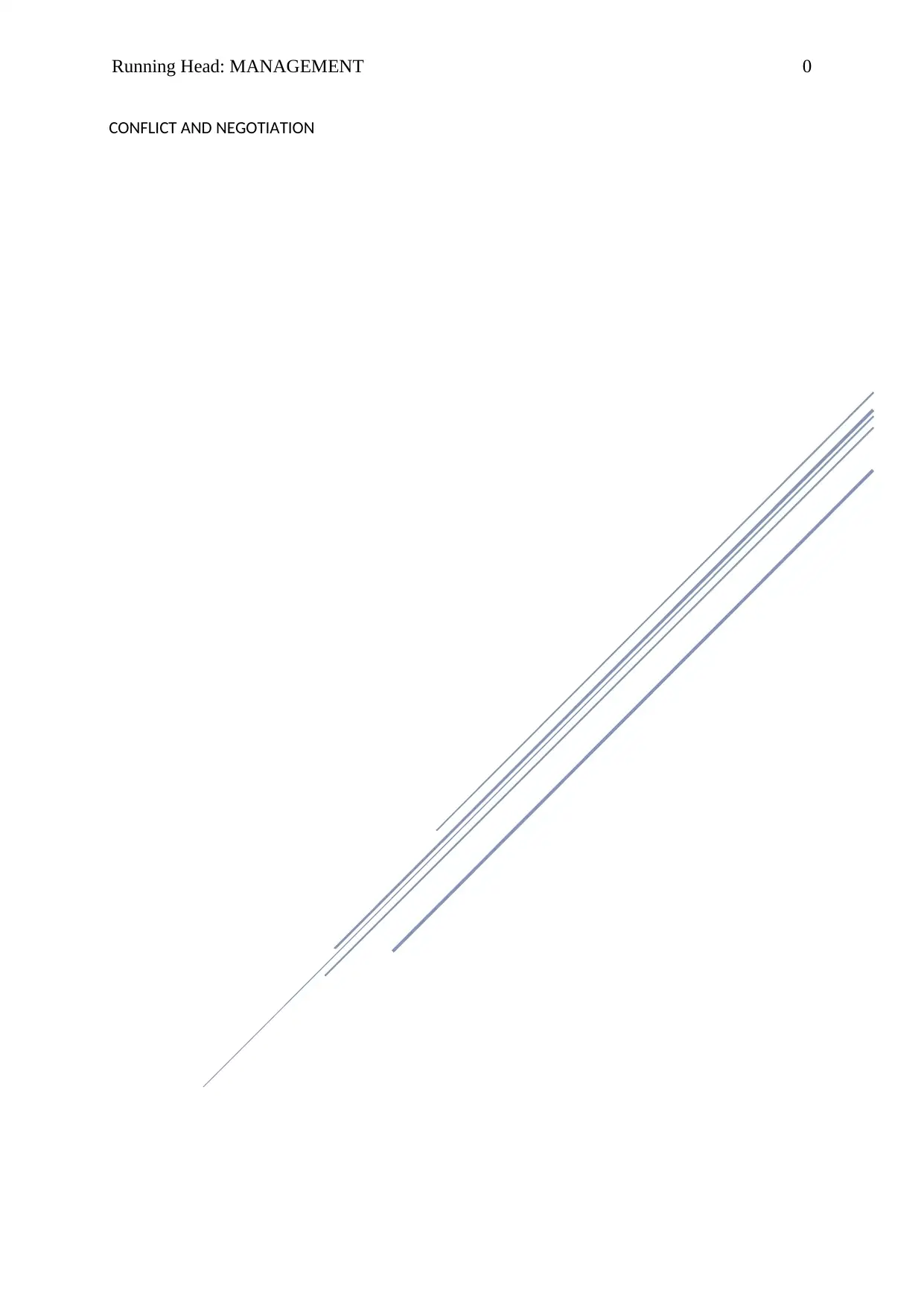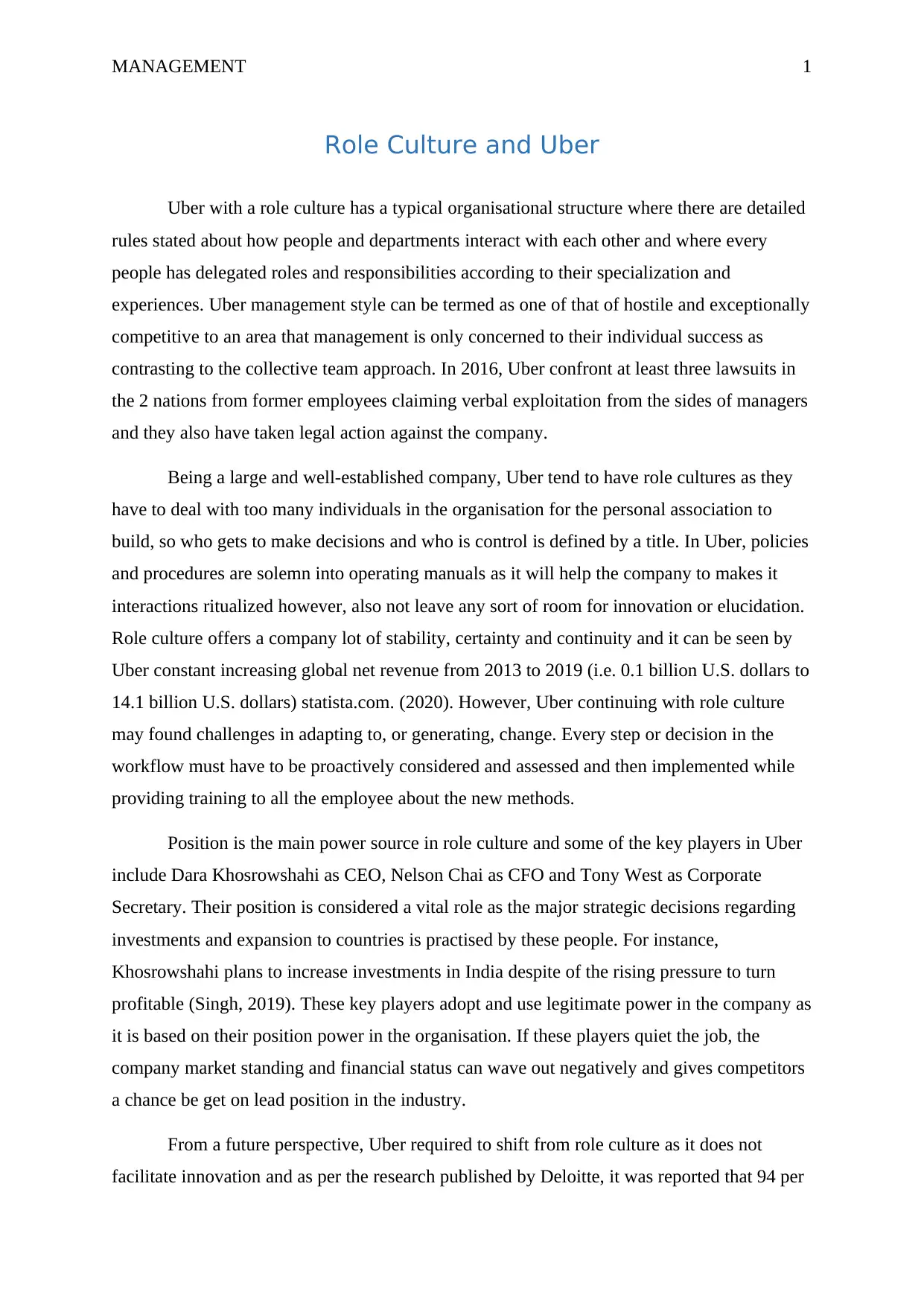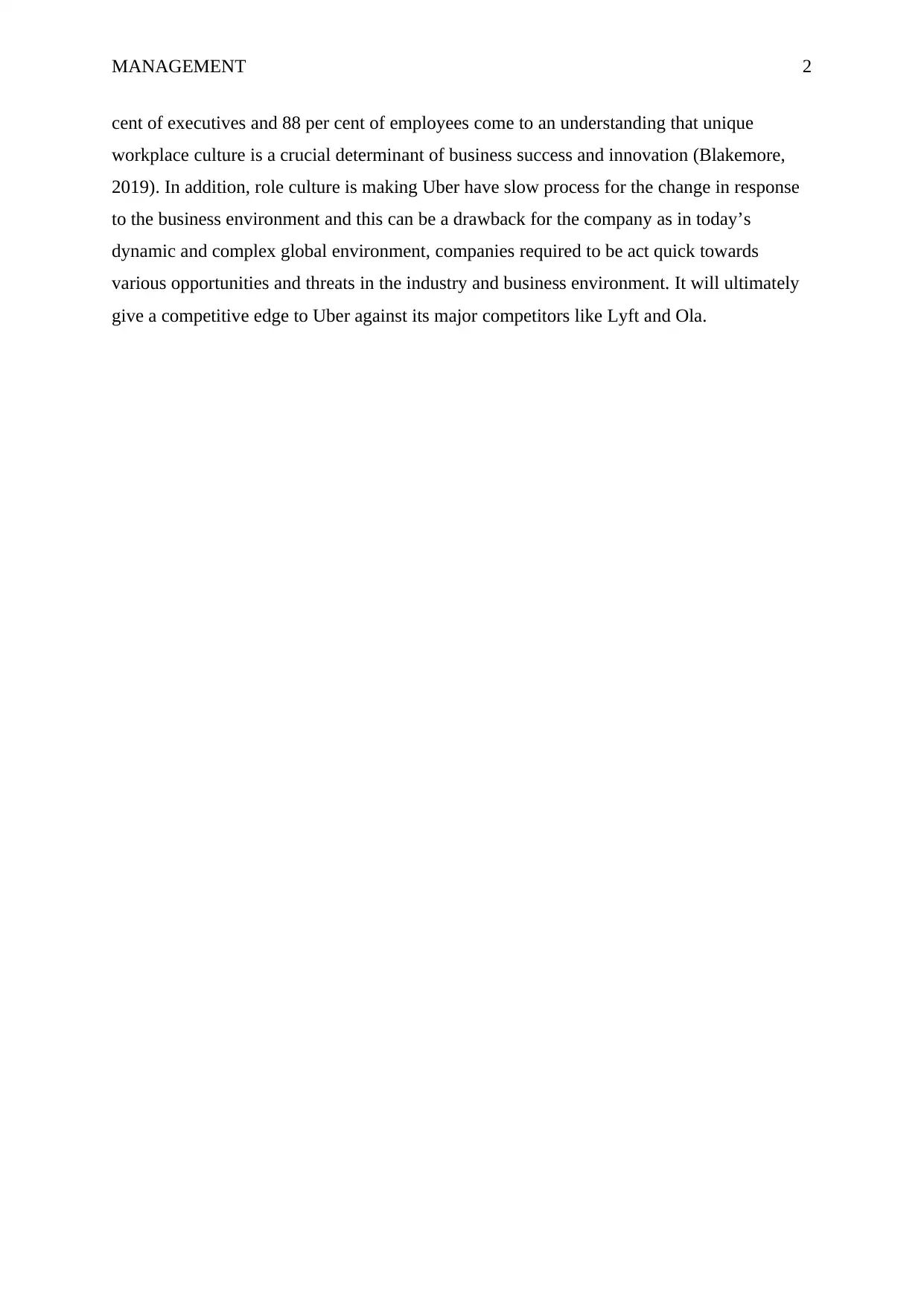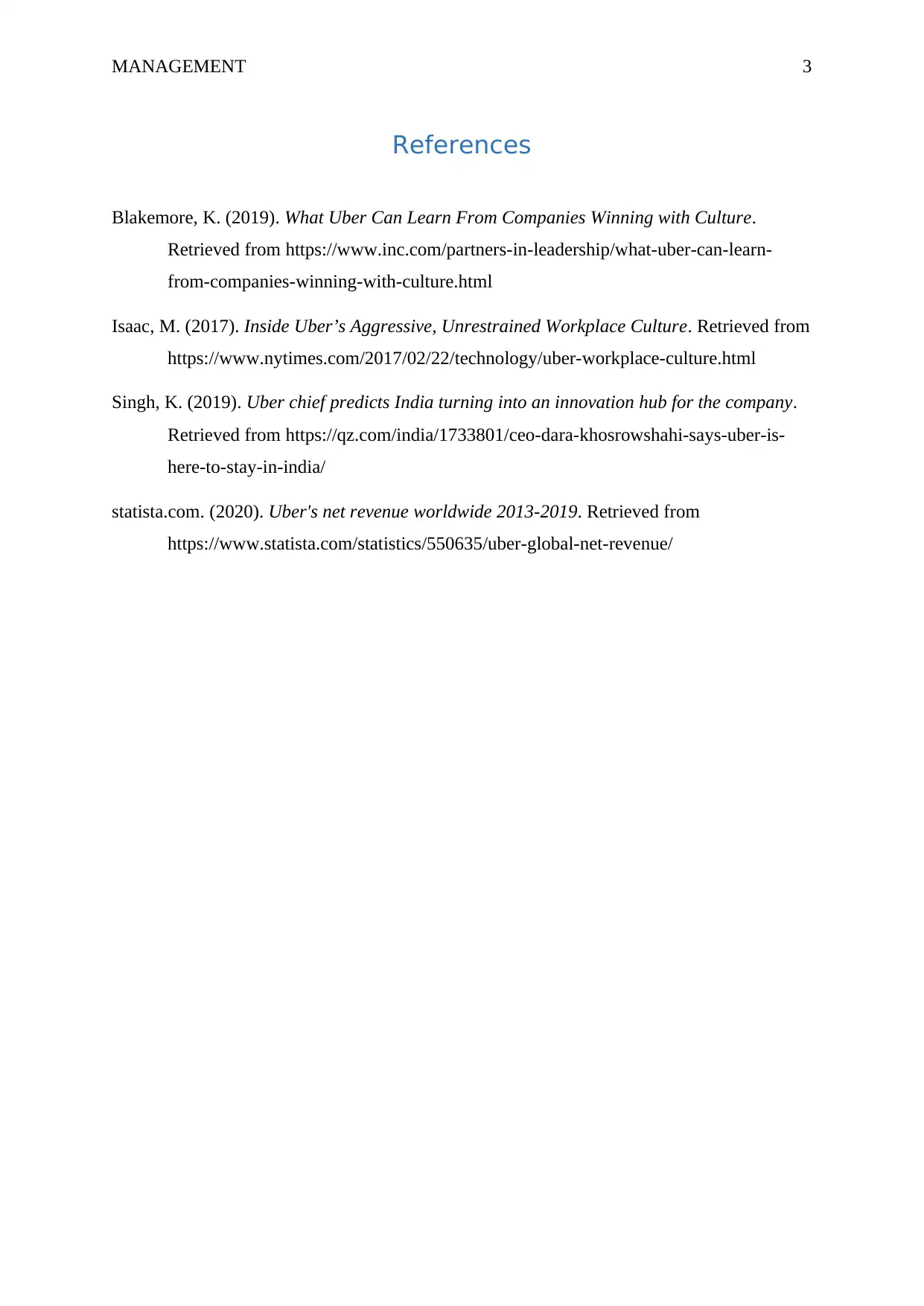Analysis of Uber's Role Culture: Management 3 Assignment
VerifiedAdded on 2022/08/25
|4
|674
|22
Report
AI Summary
This report provides an analysis of Uber's organizational culture, specifically focusing on its role culture. It examines the company's structure, decision-making processes, and the influence of key figures like Dara Khosrowshahi. The report discusses the advantages and disadvantages of a role culture within Uber, highlighting issues such as limited innovation and slow adaptation to change. It also explores the impact of this culture on conflict and negotiation, referencing lawsuits and workplace environment concerns. The report concludes by suggesting a potential shift away from a purely role-based culture to foster greater innovation and responsiveness in a dynamic business environment, ultimately aiming to give Uber a competitive edge against rivals like Lyft and Ola. The report also includes references to support its claims and analysis.
1 out of 4











![[object Object]](/_next/static/media/star-bottom.7253800d.svg)